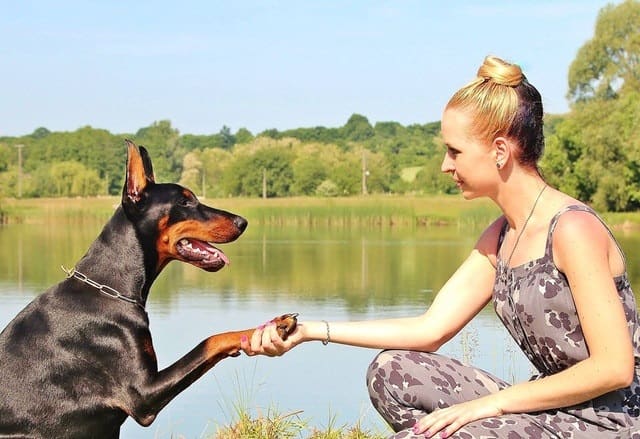The idea of getting a pet can be ever so tempting, especially when the kids keep asking, asking, asking. However, pet ownership is not to be taken lightly, and it’s not something that everyone can do well. So before committing to a pet in your home, there are a few things that you should definitely consider first.
Research The Idea
Don’t even begin searching for a pet until you have done all the research necessary. That means firstly researching which kind of pet will work best for your family, and then discovering everything you can about caring for them. Sit everyone down and have a serious meeting about all the things that will need to be done, and ensure that everyone understands they will all have to pitch in. From walking a dog to feeding your pet the right foods, to treating them for fleas and ticks with treatments from VetIQ, there is a lot to do. Some pets require less care than others. A dog, for example, needs a lot more looking after than a goldfish. However, that doesn’t mean that that care should fall to one person, or that just because you don’t want to take your dog for a walk or clean out your hamster’s cage you can leave it for another day. This talk will determine whether you’re actually ready for a pet at all; gauge your family’s reactions, and you’ll know what the answer should be, even if it’s not the one you, or they, were hoping for!
Be Honest
If you want to get a pet, you must be honest with yourself about your lifestyle. Are you at home enough to take care of it? Do you have the room? Could you afford the vet’s bills? The bedding? The food? If you can’t, or even if you’re not sure, it’s best not to get a pet. It should be easy to work out a budget and see if you have the spare money to care well for an animal. It should also be easy to determine how much space you have, and how much time you’re at home. Animals will need company, and they will need room not only to move around in but for all their equipment too. These observations could also help to determine which type of pet you get, and how big it could be, so it’s an important step to take. If your children are the ones pushing for a pet, it’s essential that they take part in this preparation stage too. If the answer is no, they will be able to understand why.
Choosing The Right Pet

There are pros and cons to every type of pet, so it’s important to think of them before deciding which one to choose. Dogs and cats may be popular choices, but they need a lot more attention and are harder work than many smaller animals. Guinea pigs can be an ideal first pet because they are social creatures, and are easy to handle. Gerbils and hamsters are lovely, but due to their small size they can be hard for children to hold properly, and that means they soon lose interest. Whatever you get, make sure that all of your family are happy with the choice, and that they will all want to get close and take care of the pet. There is no point in having a lizard, spider, or snake in the house, for example, if someone won’t go near. What would happen if it managed to get out of its cage or vivarium? What would happen if everyone was sick and just left the one person who couldn’t stand to be near the creature to feed and care for it? It wouldn’t be fair. If it is to be a family pet, it has to be one that everyone will love. Pets that aren’t going to be suitable for a family include rabbits. Rabbits bite and scratch, and although some will eventually get used to being held, many won’t. This can mean a lot of nasty nips for the kids, and the rabbit could potentially suffer from a broken back or limbs from being dropped. Chinchillas are cute and soft, but they are also high maintenance and need a lot of specialist equipment. They also like to take dust baths, so they make a lot of mess. Some dogs are just not happy being around children, so you’ll need to do your homework if you have your heart set on a pooch.
Find A Way For Everyone To Contribute
If the only thing standing in the way of you saying yes to a pet is that you don’t think your younger family members can deal with the work involved, try coming up with ways to make it possible and to make it fun. If it’s fun, they’ll want to be more involved anyway, and making things into a game, or, better still, a competition, is a good way to ensure that no one’s chores are pushed to one side. A small child may not be able to clean out the fish tank successfully, and they may not be able to walk the dog. They certainly shouldn’t be cleaning out a cat’s litter box. But they can take part in some way. This ensures that they are having good values instilled in them, and by the time they are ready to carry out the work, they can do.
Be Prepared
Once the novelty of having the new pet wears off, some children may start to lose interest in helping out. Be prepared to get stuck in yourself. Someone has to do it, after all. Despite what your children may have promised (and some will promise the world to get their longed-for new pet), things change, and if no one is there to take responsibility then it is the pet that will suffer. How you handle your child’s change of heart is down to you and your own method of parenting, but the pet needs to be considered.



Comments are closed.